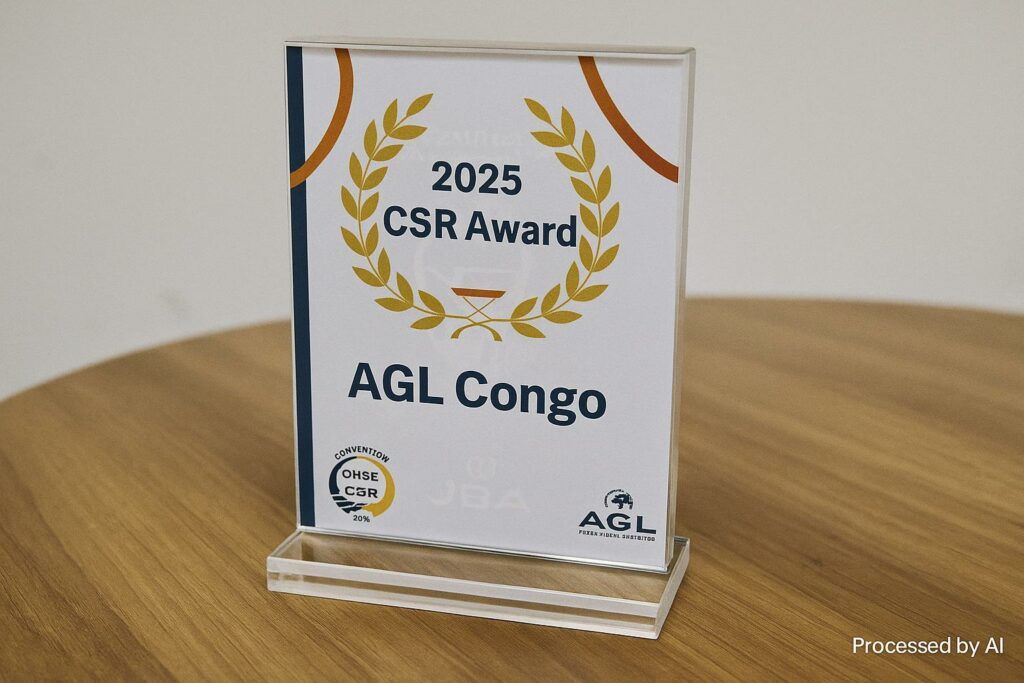A Trophy that Signals Strategic Alignment
When Africa Global Logistics (AGL) unveiled its annual CSR 2025 trophy in Paris earlier this year, the accolade travelled swiftly to Pointe-Noire. The Congolese subsidiary emerged first among more than sixty francophone and anglophone entities assessed by the group’s Quality, Health, Safety and Environment division. In the words of AGL’s global QHSE & CSR director Olivier Restoueix, the award reflects “an identity anchored in responsible enterprise”. His statement is more than corporate rhetoric: it mirrors the Congolese authorities’ pledge, reiterated in the National Development Plan 2022-2026, to harness private-sector capital for sustainable transformation. By recognising AGL Congo, the jury effectively endorsed a convergence between corporate practice and public policy rather than a standalone commercial triumph.
Metrics behind the Distinction
Members of the deliberation committee emphasised two main factors: the density of stakeholder engagement and the swiftness of data reporting. On both counts AGL Congo outperformed its peers. The subsidiary’s environmental dashboard, externally audited through the ISO 14001 standard and the Ecovadis silver medal protocol (Ecovadis 2023), records a 7 per cent year-on-year reduction in direct emissions. Although modest when juxtaposed with global decarbonisation targets, this trajectory is notable in a region where the World Bank still lists transport and logistics as the third-largest source of urban emissions (World Bank 2022).
The second metric—reporting celerity—has grown into a decisive differentiator since investors began tying credit margins to ESG disclosures. AGL Congo delivers consolidated indicators within ten working days after quarter-end, far below the industry average of twenty-five, according to the International Federation of Freight Forwarders (FIATA 2023). That speed has made it easier for multilateral banks to model climate-related risks in Congolese trade corridors, an area previously marred by data gaps.
Community Footprint in Pointe-Noire and Beyond
Beyond spreadsheets, the CSR 2025 jury cited tangible community dividends. Over the past eighteen months AGL Congo and sister company Congo Terminal financed 470 vocational scholarships in welding, electrical engineering and port logistics, in partnership with the Ministry of Technical Education. The programme, co-branded “Future Dockers”, has placed 62 per cent of graduates in full-time positions (Ministry communiqué, May 2024). Simultaneously, the subsidiary’s “Plan Zéro Accident” reduced lost-time injuries by 31 per cent, a performance applauded by the International Labour Organization’s regional bureau. These figures demonstrate that safety culture, often treated as an internal concern, can translate into macro-economic benefits through lower insurance premiums and uninterrupted cargo flows.
Synergies with the Republic’s Green Horizon
Congo-Brazzaville has pledged to cut carbon intensity by 32 per cent by 2030 under its updated Nationally Determined Contribution. Although hydrocarbon revenues remain pivotal, Brazzaville has encouraged port operators to electrify equipment and recover waste oil. AGL’s Green Terminal label, rolled out across ten African ports, dovetails neatly with that policy. According to the national maritime authority, the recent switch to hybrid rubber-tyred gantries at Pointe-Noire could shave 4 000 tonnes of CO2 annually off the port’s footprint. Such progress supports the government’s aspiration to market the deep-water hub as the Gulf of Guinea’s first low-carbon gateway, attracting blue-economy investors without challenging the current political configuration.
Risks, Realism and Outlook toward 2025
Notwithstanding the trumpet of awards, three headwinds loom. First, the lingering volatility of freight rates threatens cash flows destined for community programmes. Second, the Central African sub-region still grapples with uneven customs digitisation, a variable outside AGL Congo’s direct control but central to supply-chain sustainability. Finally, chronic power shortages in Pointe-Noire could slow the electrification drive unless forthcoming public-private partnerships materialise.
Yet the CSR 2025 trophy has conferred a reputational cushion. The African Export-Import Bank already cites AGL Congo’s ESG profile as a positive screening element for local-currency lending. Diplomats posted in Brazzaville note, off the record, that such credentials equip the country to negotiate green-transition clauses in future trade agreements with the European Union. In that sense, the award transcends corporate prestige; it becomes a diplomatic asset, amplifying Brazzaville’s narrative of responsible resource management. If the subsidiary maintains current trajectories—7 per cent emissions decline, sub-10-day reporting, triple-digit scholarship expansion—it is plausible that AGL Congo will not only meet but exceed the group’s 2025 benchmarks, reinforcing the symbiosis between private logistics and national development.

